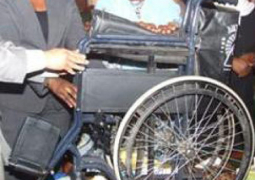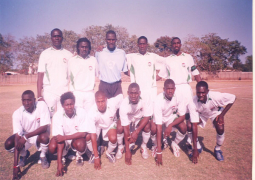A two-day governmental experts meeting on the review of the draft ECOWAS Integrated Maritime Strategy (EIMS) opened Thursday at the Paradise Suites Hotel in Kololi.
The meeting, which brought together experts from the ECOWAS sub-region, was among others aimed at reviewing and validating the EIMS document, which is currently going through a process of development that would culminate in its adoption by ECOWAS member states to serve the region as a strategic framework for action and cooperation.
Declaring the meeting open, the minister of the Interior, Ousman Sonko recalled that the three strategic documents were endorsed at the heads of state and government summit on maritime safety and security in the Gulf of Guinea held in Yaounde, Cameroon, on 24 and 25 June 2013.
He told the meeting that the maritime domain in the ECOWAS sub-region is a critically important strategic dimension in the Security-Development nexus.
‘‘The abundant resources associated with the maritime domain play a key role in the economies of almost all coastal states in the region, and constitutes an important base on which sub regional prosperity can be anchored,’’ he stated.
Sonko further noted that the maritime domain is vulnerable to a wide array of threats including: environmental degradation, marine pollution, piracy and banditry at sea, illegal unreported and unregulated fishing, narcotic drug trafficking, human trafficking, and terrorism, among others.
These threats and vulnerabilities, he added, transcend national boundaries and have regional and global implications, thus the need to come up with a multi-faceted and multi-dimensional approach to adequately and efficiently suppress them.
‘‘Due to the vast expanse of the maritime domain and the complexities of the challenges associated with it, I have the belief that no one nation can do it alone,’’ Sonko stated, while calling for greater cooperation, coordination of efforts and effective complementary roles by all maritime stakeholders at the national, sub-regional and regional levels.
This, he went on, is the only way we can harness the great potential of the abundant resources of the maritime domain, protect the maritime environment and ensure safer seas for the socio-economic development and prosperity of the sub region.
Representing Salamatu Hussaini Suleiman, ECOWAS Commissioner for Political Affairs, Peace and Security, was Abdourahmane Dieng from the ECOWAS Commission, who said it is well known that 80% of international freight comes to nations by sea due to the large platform it presents, and this dependency is also of great concern to landlocked countries that in turn depend on their immediate neighbouring coastal states for most supplies.
He stated that the growing investments in the region, especially in offshore oil infrastructure, mean that coastal trading and maritime traffic are bound to increase in the region at an ever increasing rate.
‘‘We have suffered some of the worst recorded piracy attacks in the past three years which has cost us huge economic setbacks, and this has consequently affected the GDP of the region. Rather than contributing to stability and economic prosperity, the pervasive insecurity in our resource-endowed maritime environment has resulted in constrained investment, growing criminality and potentially adverse political consequences in West Africa,’’ Dieng stated.
Other speakers included Yusupha Dibba, permanent secretary at the Ministry of Defence in Banjul.



